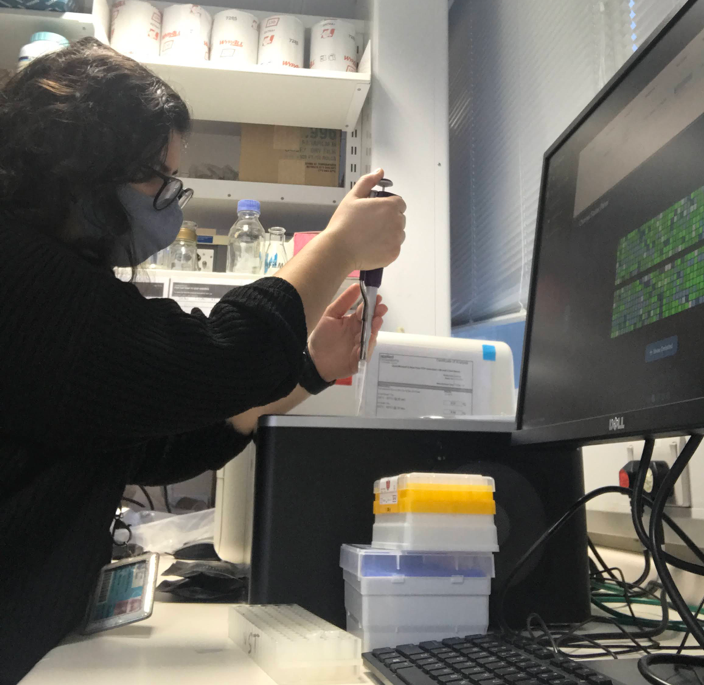Stella Christou became involved with the COVID-19 Genomics UK (COG-UK) Consortium for her PIPS placement. She joined a lab at the University of Sheffield where they sequenced SARS-CoV-2 from positive patients around South Yorkshire. Read more to find out how PIPS can further your transferrable skills.
Navigating a PIPS during a global pandemic
Determined to explore a career in public healthcare, Stella was introduced to a member lab of the COVID-19 Genomics UK (COG-UK) Consortium at the University of Sheffield after liaising with Dr Emily Goodall. Working on a big national project with ties in the NHS meant Stella would have ample opportunity to network and experience a clinical-grade research environment.
Stella’s work was focused on:
- Sequencing SARS-CoV-2 specimens from COVID-19 patients around South Yorkshire
- Testing whether positive cases from hospital wards were an outbreak from a ward or from outside the hospital
- Acquiring epidemiological data for SARS-Cov-2 in the South Yorkshire area.
“I would like to follow a career path in the public health sector, and I am an excited Microbiologist… I am really happy that BBSRC gave me the chance to get away from my [PhD] project for a small period of time and get experience in a more clinical lab…” said Stella.
What did Stella gain from her PIPS?
My PIPS helped me gain numerous things and the first one of all is confidence in my skills. Initially even though I feel confident with my PhD work I did not feel very confident that I could do well in a different environment. I was also not convinced when people kept mentioning transferrable skills, all I could think of is that we learn how to plan an experiment, pipette and analyse our own data and if lucky be relatively good public speakers. I did not think about how a PhD teaches you how to push through, work hard and always try to get results but my PIPS gave me the opportunity to realise and appreciate those skills.
I got the chance to work with different people with different skill sets. My troubleshooting skills as well as the attitude of not giving up, developed during my PhD, were very useful. This experience really helped me identify that side of me and will help me be more confident in the future.
Another thing I gained from my PIPS was the opportunity to work in a team which is not something that I have done before. The team was working on the same project, supporting each other as much as possible and we all had the same goal; to sequence COVID-19. It was very motivating that there was an end goal to the project, the results were applicable and would immediately be helpful to someone. This does not happen a lot in academia, so it was nice to experience it at this point in my scientific career.
I had the opportunity to ask a lot of questions, learn about new techniques and be involved in the optimisation of experiments that would be eventually used in the clinical lab. I learned a lot of things not just about sequencing but also about the immunology of COVID-19. I really enjoyed the experience.
Stella’s PIPS tips for PGRs
I would advise [PGRs] not to be discouraged if they cannot find the perfect PIPS, something close to their ideal could also help them gain a lot. I would also advise PGRs to take the opportunity and learn as many things as possible from the people in their host organisation, even things they were not directly involved in; this gives you the opportunity to learn new skills which can be useful in the future.
You can follow Stella on Twitter at @microbesandholo

